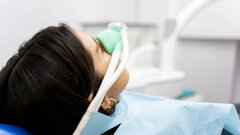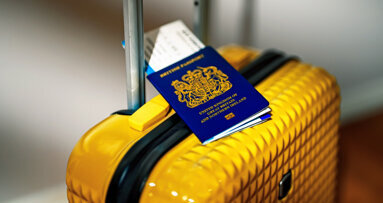YORK, UK: Today, a considerable number of governments and decision-makers recognise medical tourism, that is, patient movement for medical care, including dental care, cosmetic surgery and fertility treatment, owing to lower costs, as a national industry. However, despite increasing interest and coverage, there is a lack of research evidence on the role and impact of medical tourism, researchers from the UK have stated.
In order to contribute towards a greater theoretical and empirical understanding of medical tourism developments worldwide, researchers from the University of York examined widely held assumptions regarding the size and shape of global medical travel, including the rise of medical tourism, enormous global market opportunities and the role that national governments play in stimulating the medical tourism industry.
Overall, they found that information and data about these three assumptions is largely supplied by health-care providers, brokers, and facilitators. “What data does exist is generally provided by stakeholders with a vested interest rather than by independent research institutions,” said Dr Neil Lunt, lead author from the university’s Social Policy and Social Work department. “What is clear is that there is no credible authoritative data at the global level, which is why we are urging caution to governments and other decision-makers who see medical tourism as a lucrative source of additional revenue.”
In their report, the researchers challenged the idea that a growing number of patients are prepared to travel across national borders for medical treatment. In addition, they argue that networks, history and cultural relations may be the driving force of medical tourism in certain countries. “The destinations of medical tourists are typically based on geopolitical factors, such as colonialism and existing trade patterns. For example, medical tourists from the Middle East typically go to Germany and the UK owing to existing ties, while Hungary attracts medical tourists from Western Europe owing to proximity,” explained Dr Daniel Horsfall, who performed the statistical analysis for the study.
The study, titled “Market size, market share and market strategy: Three myths of medical tourism”, was published online on 16 October in the Policy and Politics journal ahead of print. It was conducted in collaboration with the London School of Hygiene and Tropical Medicine; Royal Holloway, University of London; and the University of Birmingham.
BORDEAUX, France: Research on children with severe or complex obesity suggests that oral health is often sidelined, despite its close links to overall ...
LONDON – A UK online adviser for medical treatment has investigated the latest trends in overseas travel for dental treatment. The company conducted a...
LONDON, UK: The parameters for what is considered a healthy smile have seemingly become narrower over the years. In a recent survey, the Oral Health ...
EDINBURGH, Scotland: Although the mental health of dentists has received increasing attention since the COVID-19 pandemic, there has been little study of ...
LONDON, UK: Though elite athletes generally possess an enviable level of physical fitness, a recent study has shown that their oral health may leave much to...
LONDON – A recently published study has suggested that the UK dentistry market does not always work to the benefit of the patient. Among other ...
BIRMINGHAM, UK: The British Dental Conference and Dentistry Show (BDCDS) took place from 12 to 13 May, and the UK dental sector attended in strong numbers ...
LIVERPOOL, England: Dental tourism has seen significant growth in recent years, particularly among younger demographics influenced by social media trends. A...
CARDIFF, UK: By now, it is well known that many leading breakfast cereals may contain a surprisingly high amount of sugar in each bowl. A recent study, ...
LONDON, England: Driven by the NHS dental crisis, an increasing number of UK patients seeking cheaper dental work overseas are encountering unexpected ...
Live webinar
Tue. 24 February 2026
6:00 pm UTC (London)
Prof. Dr. Markus B. Hürzeler
Live webinar
Tue. 24 February 2026
8:00 pm UTC (London)
Prof. Dr. Marcel A. Wainwright DDS, PhD
Live webinar
Wed. 25 February 2026
4:00 pm UTC (London)
Prof. Dr. Daniel Edelhoff
Live webinar
Wed. 25 February 2026
6:00 pm UTC (London)
Live webinar
Thu. 26 February 2026
1:00 am UTC (London)
Live webinar
Tue. 3 March 2026
4:00 pm UTC (London)
Dr. Omar Lugo Cirujano Maxilofacial
Live webinar
Wed. 4 March 2026
1:00 am UTC (London)
Dr. Vasiliki Maseli DDS, MS, EdM



 Austria / Österreich
Austria / Österreich
 Bosnia and Herzegovina / Босна и Херцеговина
Bosnia and Herzegovina / Босна и Херцеговина
 Bulgaria / България
Bulgaria / България
 Croatia / Hrvatska
Croatia / Hrvatska
 Czech Republic & Slovakia / Česká republika & Slovensko
Czech Republic & Slovakia / Česká republika & Slovensko
 France / France
France / France
 Germany / Deutschland
Germany / Deutschland
 Greece / ΕΛΛΑΔΑ
Greece / ΕΛΛΑΔΑ
 Hungary / Hungary
Hungary / Hungary
 Italy / Italia
Italy / Italia
 Netherlands / Nederland
Netherlands / Nederland
 Nordic / Nordic
Nordic / Nordic
 Poland / Polska
Poland / Polska
 Portugal / Portugal
Portugal / Portugal
 Romania & Moldova / România & Moldova
Romania & Moldova / România & Moldova
 Slovenia / Slovenija
Slovenia / Slovenija
 Serbia & Montenegro / Србија и Црна Гора
Serbia & Montenegro / Србија и Црна Гора
 Spain / España
Spain / España
 Switzerland / Schweiz
Switzerland / Schweiz
 Turkey / Türkiye
Turkey / Türkiye
 UK & Ireland / UK & Ireland
UK & Ireland / UK & Ireland
 International / International
International / International
 Brazil / Brasil
Brazil / Brasil
 Canada / Canada
Canada / Canada
 Latin America / Latinoamérica
Latin America / Latinoamérica
 USA / USA
USA / USA
 China / 中国
China / 中国
 India / भारत गणराज्य
India / भारत गणराज्य
 Pakistan / Pākistān
Pakistan / Pākistān
 Vietnam / Việt Nam
Vietnam / Việt Nam
 ASEAN / ASEAN
ASEAN / ASEAN
 Israel / מְדִינַת יִשְׂרָאֵל
Israel / מְדִינַת יִשְׂרָאֵל
 Algeria, Morocco & Tunisia / الجزائر والمغرب وتونس
Algeria, Morocco & Tunisia / الجزائر والمغرب وتونس
 Middle East / Middle East
Middle East / Middle East

















































To post a reply please login or register